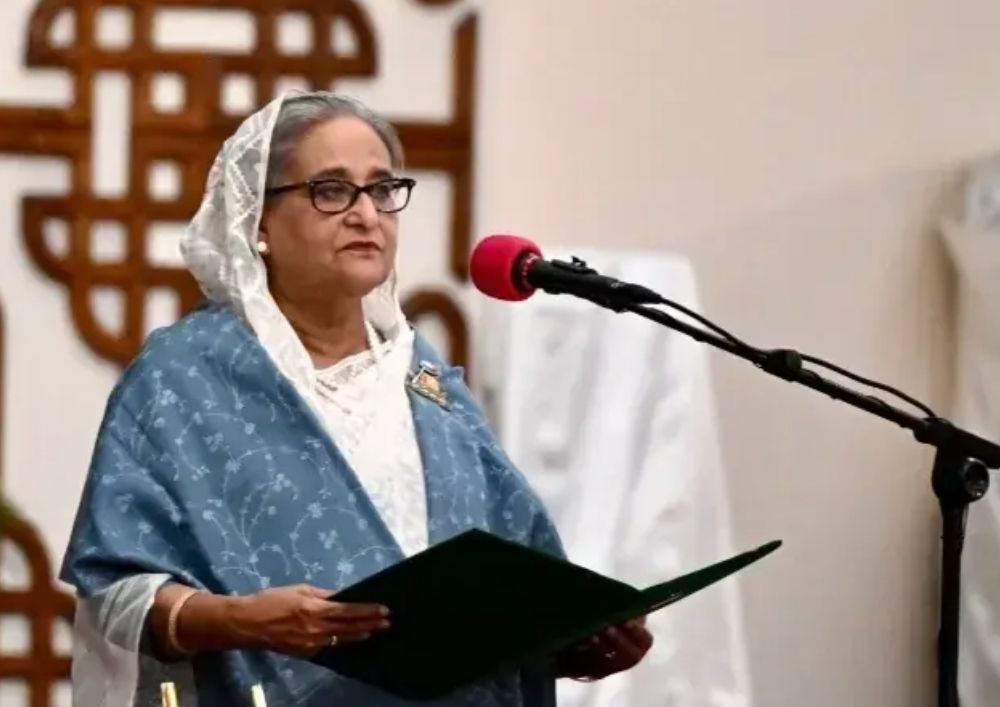NEW DELHI – India has confirmed that it is examining Bangladesh’s formal request seeking the extradition of former prime minister Sheikh Hasina, a development that has added fresh diplomatic strain to an already sensitive regional landscape. The request comes after Hasina was sentenced to death in absentia by a Bangladeshi tribunal over allegations linked to last year’s violent unrest.
India’s Ministry of External Affairs spokesperson Randhir Jaiswal said the matter is under active review and being processed through “internal legal and judicial mechanisms.” While New Delhi reiterated its commitment to regional peace and cooperation, officials avoided signalling any definitive direction, underscoring the complexity of the case.
Bangladesh’s interim government, following the verdict handed down by the International Crimes Tribunal (Bangladesh), has pressed India to hand over the former premier under the provisions of the bilateral extradition treaty, originally signed in 2013 and amended in 2016. Dhaka maintains that the alleged offences fall squarely within extraditable categories, arguing that Hasina must face justice at home.
However, diplomatic observers believe India is navigating a significantly complicated terrain. The extradition treaty includes clauses that allow refusal in cases deemed “political offences,” a category many analysts argue Hasina’s case could fall into. Questions surrounding due process, political motivation, and human rights implications are expected to weigh heavily on New Delhi’s assessment.
Legal experts also note that handing Hasina over could set a precedent with far-reaching consequences across South Asia, particularly regarding political asylum and regional power balances. India, which has hosted Hasina since her dramatic escape from Dhaka amid mass protests in August 2024, may consider the broader diplomatic fallout before making any move.
Meanwhile, Bangladesh continues to push for rapid cooperation, stating that justice and accountability demand swift extradition. The tension between both nations has noticeably heightened, with Dhaka publicly reminding New Delhi of its obligations under the treaty.
As India’s review proceeds, regional analysts expect international rights bodies and legal scholars to closely monitor the case, given its potential implications for political leaders seeking refuge beyond their borders. Both governments, however, appear cautious—aware that the outcome may reshape diplomatic norms and regional alignments.
This story has been reported by PakTribune. All rights reserved.



